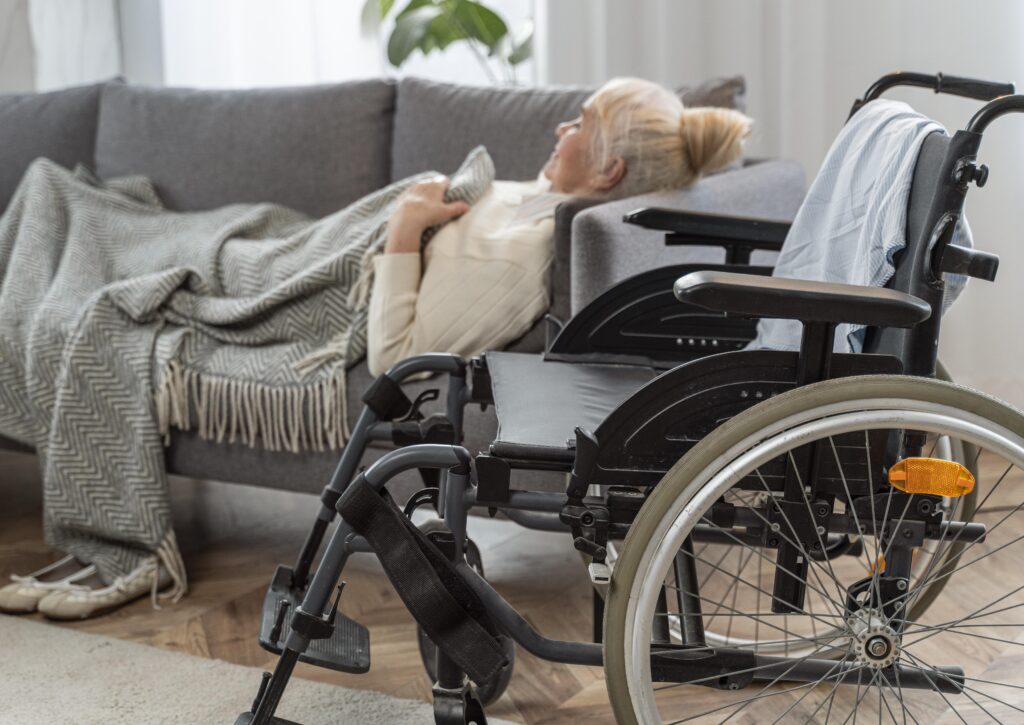Disability Accommodation
🏡 Disability Accommodation: Empowering Independence and Inclusion
Disability accommodation involves modifying environments, systems, or services to ensure equal access and opportunities for individuals with disabilities. These accommodations are essential in fostering inclusivity, enabling people with disabilities to participate fully in society—whether at work, in education, or within community spaces.
At Protector & Care Advocacy Services, we are dedicated to ensuring that people with disabilities receive the support and resources they need to thrive and lead independent, fulfilling lives.

🔑 Significance of Disability Accommodation
Disability accommodation is essential in bridging the gap between people with disabilities and the opportunities that might otherwise be inaccessible to them. These accommodations are not just about convenience; they are vital for equity, justice, and human rights.
✅ Key Benefits of Disability Accommodation:
Ensures Equal Opportunity: Disability accommodations ensure individuals with disabilities have the same opportunities for success and participation as those without disabilities.
Promotes Inclusivity: When accommodations are implemented in educational, professional, and public settings, it fosters an inclusive environment where everyone is valued.
Compliance with Australian Laws and Regulations: Disability accommodation is not only a legal obligation under the Disability Discrimination Act 1992 but is essential for providing equal access and preventing discrimination.
Reduces Barriers: Disability accommodations remove physical, social, and technological barriers that might otherwise prevent full participation in work, education, and community activities.
🛠️ Types of Disability Accommodation
Disability accommodations come in various forms based on the needs of the individual and the environment. Below are some common types:
Physical Modifications:
Wheelchair Ramps and Accessible Entrances: Ensuring that spaces are accessible to mobility devices.
Elevators and Lifts: Essential for multi-story buildings, allowing accessibility for individuals unable to use stairs.
Adjustable Desks and Workstations: In workplaces, adjustable desks can accommodate individuals with limited mobility or dexterity.
Accessible Restrooms: Bathrooms designed to meet the needs of people with physical disabilities.
Technology-Based Accommodations:
Screen Readers and Magnifiers: For individuals with visual impairments, these tools convert text to speech or magnify digital content for accessibility.
Voice Recognition Software: Enables people with physical disabilities to control their devices or dictate content.
Captioning Services: Ensures that video and audio content is accessible to those with hearing impairments.
Workplace Adjustments:
Flexible Hours or Telecommuting: Modifying work schedules or providing the option to work remotely to accommodate medical appointments or other needs.
Modified Job Duties: Adjusting specific tasks to suit employees with disabilities.
Supportive Services: Offering services like interpreters, personal assistants, or job coaches as needed.
Educational Accommodations:
Extended Time for Tests: Ensuring extra time for students with learning disabilities or ADHD to complete exams.
Note-Taking Services: Peer note-takers or assistive technologies to help students with disabilities access lecture notes.
Accessible Learning Materials: Providing textbooks in accessible formats like Braille, large print, or digital text.
Social and Community Accommodations:
Sign Language Interpreters: To ensure effective communication for people who are deaf or hard of hearing.
Accessible Transportation Services: Ensuring individuals with mobility issues have access to transport for work, school, or other activities.
🌟 Benefits of Disability Accommodation
Providing disability accommodations brings significant benefits to both individuals and the communities or organisations they belong to. Some key benefits include:
Enhanced Inclusivity and Equality: Disability accommodations ensure that individuals with disabilities are included and treated equally, whether in schools, workplaces, or public spaces.
Increased Productivity and Engagement: The right accommodations enable individuals to perform at their best, leading to higher job satisfaction, improved educational outcomes, and greater participation in social activities.
Legal Compliance and Risk Reduction: Organisations that implement the right accommodations comply with Australian laws, avoiding legal risks and potential discrimination lawsuits.
Improved Mental Health: Accommodations reduce isolation and frustration, leading to increased confidence and emotional well-being.
Diverse Perspectives: Supporting people with disabilities promotes diversity, innovation, and creativity, enriching workplaces, classrooms, and communities.
🧭 How Protector & Care Advocacy Services Can Help in Australia
At Protector & Care Advocacy Services, we are dedicated to ensuring that individuals with disabilities receive the accommodation and resources they need to lead successful, independent lives. Our services include:
Personalised Accommodation Assessments: We conduct thorough assessments to understand the unique needs of individuals, providing tailored recommendations for accommodations in work, school, and community settings.
Advocacy and Support: We work on behalf of individuals to advocate for the implementation of reasonable accommodations in schools, workplaces, and public spaces. Our team assists clients in navigating the legal and bureaucratic systems to access the support they are entitled to.
